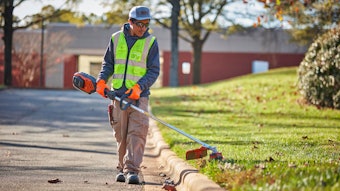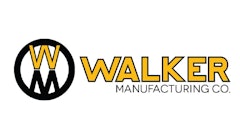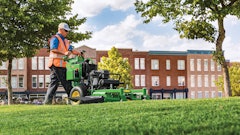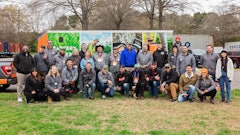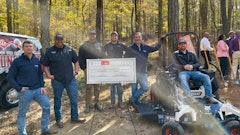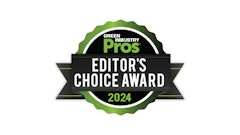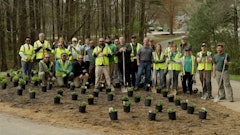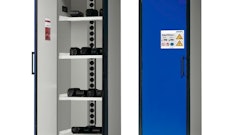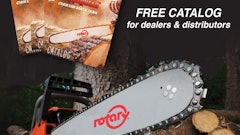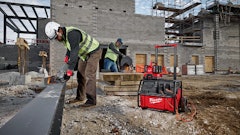
When you were profiled in PRO back in 2007, about two-thirds of your sales came from design/build. Is this still the case today? More of our revenue now comes from snow removal and landscape maintenance, as those areas have been growing while design/build has laid flat. However, we wouldn’t have been able to grow had we not acquired another design/build/maintenance company.
One of your biggest challenges has been getting customers to understand the difference between “high-quality work” and “those contractors who just do work”. Is this still the case? Has it gotten even worse during the recession? Yes and no. I think people understand the value of the services we offer, but the road block continues to be price point. A lot of people are still constricted by their budgets. You can get your foot in the door and have a lot of conversations with people, but ultimately it’s going to come down to price point. We’ve adjusted our pricing to meet where the market is. Fortunately, we’ve still found a way to continue making our margins. We’ve just had to play with our numbers a little bit.
Things are getting better, though. Earlier this spring, we signed a new three-year contract with a large management company. The client said they are through dealing with the inconsistency of service across multiple contractors. Our price was a little bit higher than some of the other bids, but we got the contract because the client wanted to consolidate their vendor list. We gave a little bit, and so did the client.
Central to our sales message is that we are a one-stop shop. We’ve even brought irrigation in-house this year. We still sub-out lawn care services, simply because we have a really good subcontractor we work with who makes it very easy for us. There will likely come a time when we bring that in-house, too. Our biggest differentiator is that we can handle all kinds of work, and large volumes of it.
How do you help consumers understand what quality landscape services really are? Open lines of communication with each client are so important. We set up each client with an account manager, which I think is pretty standard for larger landscape companies to do. But for whatever reason, it’s kind of a rare thing in our market, so it gives us an edge. Our goal is to kill our clients with kindness, and communication.
In part, I’ve been relying on advice from other contractor members of PLANET as to how often we should be communicating with our clients. We now keep a log, so I can quickly see if our account managers are reaching out to the clients once a week, or however often the client has requested. It creates accountability, which is critical.
We also make sure we remain focused on each client’s top five “pains”—which we identify during some of our early conversations when they are still prospects. We are sure to ask them what they want fixed right away and what they hear the most from their tenants—and that’s what we focus on. It makes no sense to straight mowing lines if the client is much more concerned about weeds.
When did you earn your Landscape Industry Certified Manager (CLP) designation and how has it helped you? This happened in 2009. The education aspect was a big driver behind the decision to do it. The amount of studying you have to do in order to earn this certification simply makes you a better owner and manager. I’ve learned so much about all aspects of business management, including marketing, finance and HR (human resources). Now I’m looking to have some of my key managers earn this certification as well. The more knowledge they have, the better we will be as a company.


